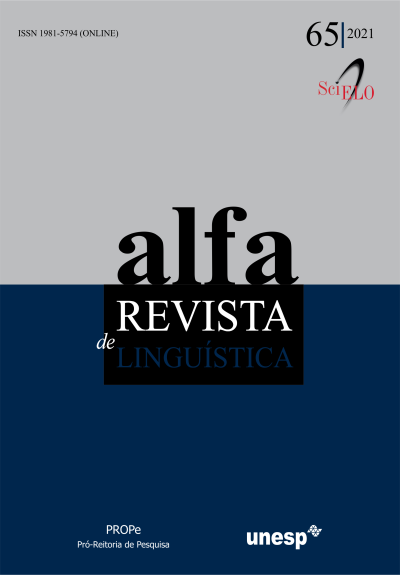Língua e fascismo
Configurações do olhar barthesiano
DOI:
https://doi.org/10.1590/1981-5794-e12459Palavras-chave:
Fascismo, Nazifascismo, Língua, Barthes, Filosofia da LinguagemResumo
A partir da declaração de Barthes, afirmando que a língua é fascista, este artigo de opinião realiza uma relação entre os modelos político-ideológicos dos movimentos nazifascistas e as características do conceito de língua barthesiana. As análises caminham pelo campo da filosofia da linguagem e metaforizam os espaços do leitor, autor, texto e contexto de forma a trazer uma reflexão provocativa aos momentos históricos e quadros políticos dos últimos 80 anos. Para esse exame, leva-se em conta teóricos do campo da linguagem como Rodman e Fromklin (1993), Rajagopalan (2003), Fiorin (2008); na esfera da historiografia dialoga-se com Casara (2017), Woolf (1974), Trevor-Roper (1974), além de outros autores que circundam esta investigação de forma relevante. A medida em que se reflete sobre as razões dos pensamentos totalitaristas e verifica-se sua aproximação com a língua-autoritária vislumbrada por Barthes, pode-se mais facilmente compreender como as relações humanas precisam, muitas vezes, ser humanizadas. Como resultado deste estudo, pode-se considerar que os lugares discursivos são capazes de gerar aprisionamento ou liberdade, podem propor o fascismo ou a democracia pela literatura, e tais análises precisam ser contempladas.
Downloads
Downloads
Publicado
Como Citar
Edição
Seção
Licença
Os manuscritos aceitos e publicados são de propriedade da Alfa: Revista de Linguística. É vedada a submissão integral ou parcial do manuscrito a qualquer outro periódico. A responsabilidade do conteúdo dos artigos é exclusiva dos autores. É vedada a tradução para outro idioma sem a autorização escrita do Editor ouvida a Comissão Editorial.

